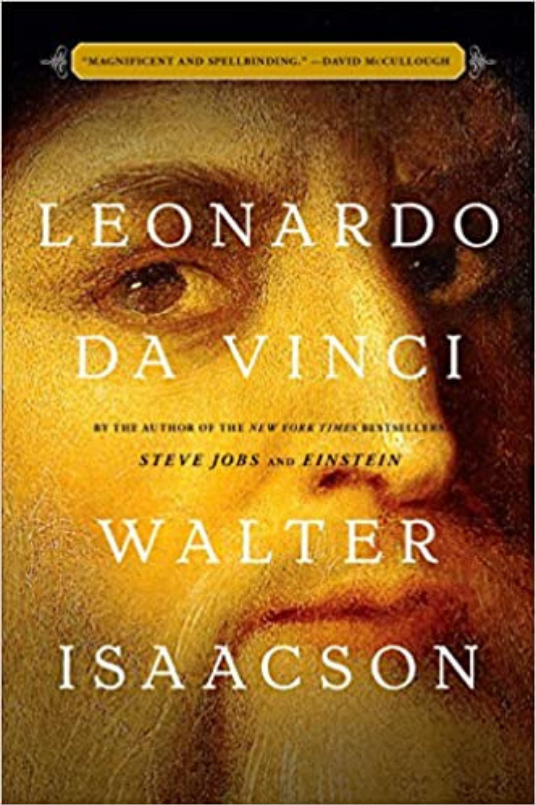And is a great example of why you should let your reading habit flow towards the books that hook you.
I started and stopped reading this book a couple of times. Still, I kept coming back to it. And when the time was right, it hooked me and I finished it.
A life a about a master, written by a master.
If you are a curious person, you’ll definitely want to read this book as Leonardo is probably the most curious person in history.
Look forward to many newsletters and blogs including stories and insights from Leonardo’s life.
Flow: 3/5
Actionability: 3/5
Mindset: 5/5
Some of My Highlights:
“He rarely retreated t the countryside for an extended period of solitude. Like many artists, he was stimulated by being with people of diverse interests…”
“Florence’s festive culture was spiced by the ability to inspire those with creative minds to combine ideas from disparate disciplines.”
“…Leonardo finally broke away and opened a workshop of his own in 1477. Commercially, it was a failure.”
“Thus one of history’s most creative artists found himself decorating a clock for firewood, borrowing money for paint, and cadging wine.”
“Leonardo at twenty-nine was more easily distracted by the future than he was focused on the present. He was a genius undisciplined by diligence.”
“The young Lippi had learned from Botticelli the fine art of flattery; as in Botticelli’s earlier version, Lippi’s Adoration of the Magi features likenesses of many members of the Medici family. Leonardo, who lacked that instinct to cater to patrons when painting, had paid no such homage to the Medici in his unfinished Adoration or in any of his other works.”
“It shows that Leonardo’s record of unreliability was not simply because he decided to give up on certain paintings. He wanted to perfect them, so he kept hold of many of them for years, making refinements.”
“Leonardo’s dedication to portraying the outward manifestations of inner emotions would end up driving not only his art but some of his anatomical studies.”
“As he approached his thirtieth birthday, Leonardo had established his genius but had remarkably little to show for it publicly.”
“His letter to Ludovico is thus best regarded not as a reliable catalogue of his actual engineering accomplishments but instead as a glimpse into his hopes and ambitions.”
“His notebooks have been rightly called ‘the most astonishing testament to the powers of human observation and imagination ever set down on paper.'”
“Leonardo da Vinci’s entrée into the court of Ludovico Sforza came not as an architect or engineer but as a producer of pageants.”
“Leonardo’s triumph designing The Masque of the Planets brought him a modest amount of fame – more than he had received as a painter of unfinished panels and certainly more than he had ever earned as a military engineer.”
“Leonardo, with great fanfare, was brought to the duke to play for him, since the duke had a great liking for the sound of the lyre, and Leonardo brought the instrument which he had built with his own hands. With this, he surpassed all the musicians who came there to play. In addition, he was the best improviser of verses of his time.” – Vasari
“There are at least three hundred of them in his notebooks, in a variety of forms: fables, facetious tales, prophecies, pranks, and riddles.”
“He was a clever conversationalist and storyteller, according to Vasari, and that served him well with these slight entertainments that might seem, in retrospect, trivial endeavors.”
“As a result, he spent more time pursuing wisdom than working on jobs that would make him money beyond what he needed to support his growing household retinue.”
